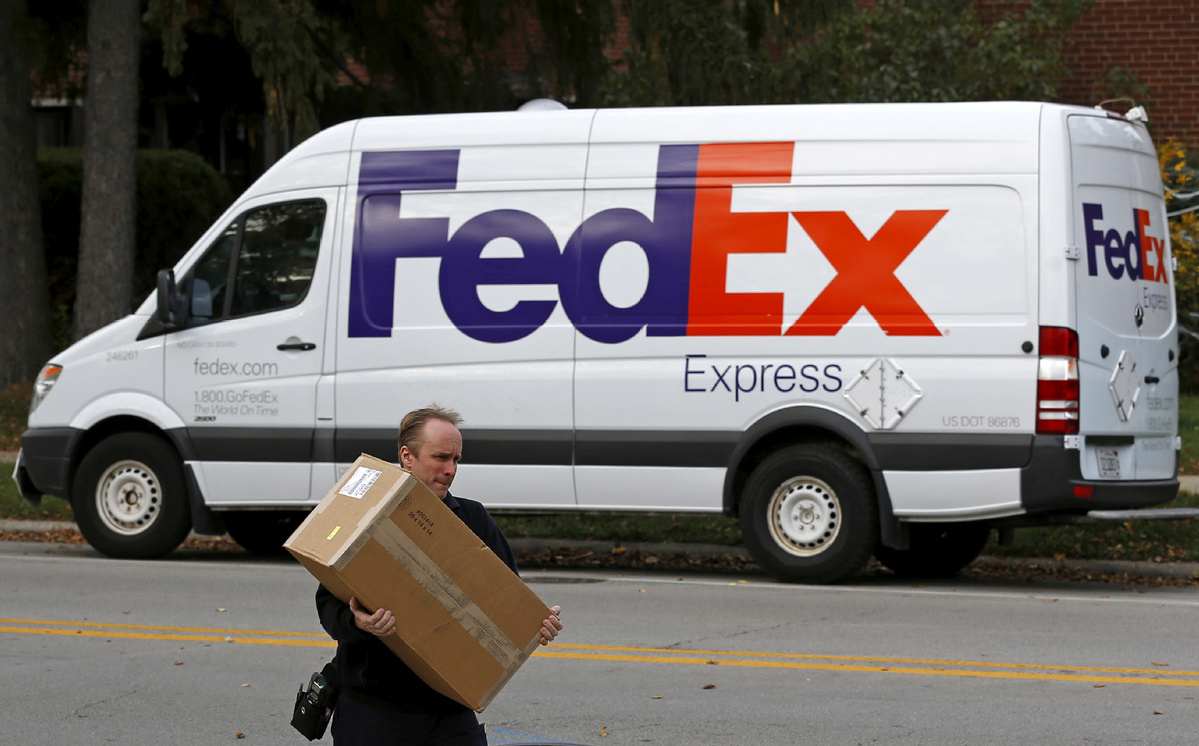CEO: FedEx cannot be US govt's policeman
By Heng Weili in New York and Liu Zhihua in Beijing | China Daily | Updated: 2019-06-26 23:32

As FedEx Corp faces pressure after mishandling packages involving China's Huawei Technologies Co Ltd, the US company has sued the US government, claiming that it is "a transportation company, not a law enforcement agency."
FedEx filed a suit on Monday in US District Court in Washington DC, seeking to enjoin the US Department of Commerce from enforcing prohibitions contained in the Export Administration Regulations, also known as the EAR.
Frederick W. Smith, the company's CEO and chairman, told Fox News that FedEx cannot be the US government's policeman for export and import controls.
"Huawei is just emblematic of the problem," Smith said.
"The Huawei incident concerns two packages, two out of 15 million ... That is exactly the kind of confusing situation when any tiny number of packages becomes an international cause celebre, because of these regulations that make FedEX and other common carriers responsible for government regulations to prohibit exports and imports, to certify that the shipper who may or may not be telling the truth is in compliance with those exports regulations.
"Despite the fact that we have 15 million shipments a day, and if we make an error on any one of them, without a trial, without any due process, we can be fined $250,000 for a piece."
He said the company doesn't think these regulations are based on law.
"FedEx believes that the EAR violate common carriers' rights to due process under the Fifth Amendment of the US Constitution as they unreasonably hold common carriers strictly liable for shipments that may violate the EAR without requiring evidence that the carriers had knowledge of any violations," FedEx said in a statement.
"This puts an impossible burden on a common carrier such as FedEx to know the origin and technological makeup of the contents of all the shipments it handles and whether they comply with the EAR."
Last month, FedEx rerouted four packages bound for Huawei's headquarters in Shenzhen, Guangdong province, to the United States, claiming "inadvertent misrouting."
The incident led to a regulatory investigation by the Chinese government "on suspicion of undermining the legitimate rights and interests of Chinese clients."
Over the weekend, FedEx returned a New York-bound package containing a Huawei smartphone, a P30 Pro, to the sender at PCMag's office in London.
According to Fortune.com, FedEx returned the phone with a note saying the shipment was voided due to a "US government issue with Huawei and the Chinese government."
FedEx's filing on Monday said that the US Department of Commerce restrictions "essentially deputize Fed-Ex to police the content of the millions of packages it ships daily even though doing so is a virtually impossible task, logistically, economically, and in many cases, legally."
On May 16, the US Department of Commerce placed Huawei and 68 affiliates on an "Entity List" that restricts companies from providing Huawei and its affiliates with technology originating in the US without government approval. On May 20, however, the US Department of Commerce said there would be a 90-day grace period before the Huawei restrictions went into effect.
The lawsuit did not mention the Huawei incidents specifically.
"1,100 entities are now on the list (of the US Department of Commerce), with five more just added on Friday. It is impossible even with the fantastic computer systems and compliance investigation we made that we simply cannot be the policeman for the US Department of Commerce," Smith said.
A spokesman for the US Department of Commerce told The Wall Street Journal that it had yet to review FedEx's complaint.
FedEx's main rival, United Parcel Service Inc, said on Tuesday it would not be a party to the lawsuit.
The US has accused Huawei of violating sanctions against Iran, a country with which it is currently involved in an escalating political dispute.
Huawei has said that the US sanctions could cost it billions of dollars in revenue. Numerous US semiconductor companies also stand to lose substantial business with Huawei due to the restrictions.
























